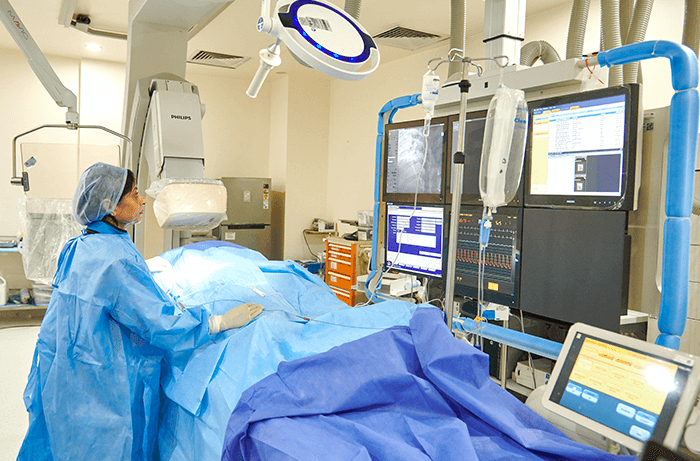×
Select Your Country
 International
International

×
Select Your Country
 International
International


Blood cancer refers to cancer that affects the bone marrow, where the blood cells are produced, or the other parts of the immune system, such as the lymph nodes. In India, more than 50,000 people are diagnosed with leukaemia (blood cancer) and around 3.7% of the total cases are reported every year.
Types of Blood Cancers
The major types of blood cancers are:
Lymphoma: Also known as the cancer of the lymphatic system, this type of blood cancer affects the lymphocytes, a type of white blood cells that are a critical part of the body’s immune system. There are multiple types of lymphoma:
Hodgkin lymphoma
Burkitt lymphoma
Diffuse large B cell lymphoma
Waldenström macroglobulinaemia
Follicular lymphoma
Leukaemia: It affects the cells in the bone marrow, a spongy and soft tissue found inside the bones that produce blood cells. This type of cancer affects the white blood cells. Leukaemia is divided into multiple types on the basis of the time of development (chronic or the ones that take a long time to develop an acute or the ones that develop in a short span of time):
Acute myeloid leukaemia
Childhood leukaemia
Chronic lymphocytic leukaemia
Acute lymphoblastic leukaemia
Chronic myeloid leukaemia
Acute promyelocytic leukaemia
Myeloma: It generally affects the plasma cells which are a type of white blood cells that produce antibodies.
Myeloproliferative neoplasms: This rare type of blood cancer occurs when the body produces too many blood cells of a particular type. There are several types of myeloproliferative neoplasms:
Essential thrombocythemia
Chronic Myeloid Leukaemia
Myelofibrosis
Polycythaemia vera
Myelodysplastic syndromes: This precancerous condition occurs when faulty cells are produced in the bone marrow and it may gradually lead to blood cancer.
Symptoms of Blood Cancer
The symptoms of blood cancer vary greatly. However, the most common symptoms are:
Fever
Night sweats
Breathlessness
Rashes or itchy skin
Unnatural pale complexion
Lumps
Persistent infections
Pain in the joints
Drastic weight loss
Unexplained bruises or bleeding
Tiredness throughout the day even while resting
The patient should consult an oncologist if they have any of the above symptoms.
Blood Cancer Diagnosis
Physical Exam: During a physical examination, the doctor looks for physical signs, such as the swelling of lymph nodes, signs of anaemia, and enlargement of the liver and spleen.
Blood cancer is diagnosed with the help of the following tests:
Complete Blood Count (CBC): It is one of the most common tests performed for diagnosing blood cancer. This test measures the following types of blood cells:
White Blood Cell Differential: This test is conducted for measuring several types of white blood cells, such as monocytes, basophils, eosinophils, lymphocytes, and neutrophils.
White Blood Cell Count (WBC): Also called the leukocyte count, the WBC count test is performed for measuring the total number of WBCs in the blood sample. White blood cells protect the human body against cancer cells, infections, and various other foreign bodies.
Platelet Count: This test is conducted for measuring the number of platelets, which are necessary for forming blood clots in a blood sample.
Red Blood Cell (RBC) Count: Also known as an erythrocyte count, the RBC count test is performed for measuring the number of red blood cells (RBCs) in the blood sample. The measurement of haemoglobin and haematocrit is done to measure the number of RBCs.
Lymph node biopsy in lymphoma
Bone marrow biopsy and aspiration
Some highly specialized tests are performed for the typing of blood cancers:
Karyotyping
Fluorescent in situ hybridization (FISH)
Next-generation sequencing (NGS) is the latest method of diagnosing and risk stratification of various blood cancers.
Immunohistochemistry or Flowcytometry
Treatment of Blood Cancer
The following treatments are used for treating blood cancer:
Chemotherapy: This therapy is performed in cycles and involves the administration of drugs or medications intravenously or orally to kill cancer cells. Between the cycles, a long gap is generally taken.
Watchful Waiting or Active Surveillance: Some blood cancer patients may not need comprehensive treatments or in some cases, treatment may not be beneficial at that time. In such instances, patients are monitored via follow-up visits and regular blood tests. Moreover, watchful waiting may be the safest method for preventing the side-effects of cancer treatment.
Stem Cell Transplant: During this procedure, the abnormal stem cells are replaced by healthy cells intravenously. The various types of stem cell transplant are:
Allograft or allogeneic stem cell transplant: Healthy stem cells from a donor are used for the transplant.
Autograft or autologous stem cell transplant: Healthy stem cells from the patient are gathered, stored, and transplanted back.
Targeted Therapies: Also known as biological therapies, these therapies involve the detection of genetic changes in the cancer cells, which are then targeted and destroyed.
Surgery: Surgical procedures are only suggested in rare instances when the spleen of the patients diagnosed with lymphoma must be removed.
Radiotherapy: This form of therapy involves the use of high-energy rays, such as X-rays, for destroying cancer cells. This therapy is primarily used for treating Hodgkin lymphoma or non-Hodgkin lymphoma. During this therapy, machines are used to direct high-energy rays towards the area where the cancer cells are located.
With a prolific and experienced team of surgeons, specialists, pathologists, radiation therapists, oncologists, and nurses, Manipal Hospital, one of the best cancer hospitals in India, offers personalized patient care and treatment and ensures that you get the care you need and deserve. Blood cancer treatment in India is available at Manipal Hospital located in different cities.